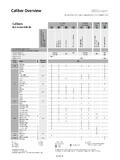Transcription of THE LADDER OF DIVINE ASCENT - Prudence True
1 1 THE LADDER OF DIVINE ASCENT St. John Climacus Translated by Archimandrite Lazarus Moore (Harper & Brothers, 1959) An Ascetic Treatise by Abba John, Abbot of the monks of Mount Sinai, sent by him to Abba John, Abbot of Raithu, at whose request it was written. Step 1 On renunciation of the world 1. Our God and King is good, ultra-good and all-good (it is best to begin with God in writing to the servants of God). Of the rational beings created by Him and honoured with the dignity of free-will, some are His friends, others are His true servants, some are worthless, some are completely estranged from God, and others, though feeble creatures are equally His opponents. By friends of God, dear and holy Father,1 we simple people mean, properly speaking, those intellectual and incorporeal beings which surround God. By true servants of God we mean all those who tirelessly and unremittingly do and have done His will.
2 By worthless servants we mean those who think of themselves as having been granted baptism, but have not faithfully kept the vows they made to God. By those estranged from God and alienated from Him, we mean those who are unbelievers or heretics. Finally, the enemies of God are those who have not only evaded and rejected the Lord s commandment themselves, but who also wage bitter war on those who are fulfilling it. 2. Each of the classes mentioned above might well have a special treatise devoted to it. But for simple folk like us it would not be profitable at this point to enter into such lengthy investigations. Come then, in unquestioning obedience let us stretch out our unworthy hand to the true servants of God who devoutly compel us and in their faith constrain us by their commands. Let us write this treatise with a pen taken from their knowledge and dipped in the ink of humility which is both subdued yet radiant.
3 Then let us apply it to the smooth white paper of their hearts, or rather rest it on the tablets of the spirit, and let us inscribe the DIVINE words (or rather sow the seeds).2 And let us begin like this. 3. God belongs to all free beings. He is the life of all, the salvation of all faithful and unfaithful, just and unjust, pious and impious, passionate and dispassionate, monks and seculars, wise and simple, healthy and sick, young and old just as the diffusion of light, the sight of the sun, and the changes of the weather are for all alike; for there is no respect of persons with God .3 4. The irreligious man is a mortal being with a rational nature, who of his own free will turns his back on life and thinks of his own Maker, the ever-existent, as non-existent. The lawless man is one who holds the law of God after his own depraved fashion,4 and thinks to combine faith in God with heresy that is directly opposed to Him.
4 The Christian is one who imitates Christ in thought, word and deed, as far as is possible for human beings, believing rightly and blamelessly in the Holy Trinity. The lover of God is he who lives in communion with all that is natural and sinless, and as far as he is able neglects nothing good. The continent man is he who in the midst of temptations, snares and turmoil, strives with all his might to imitate the ways of Him who is free from such. The monk is he who within his earthly and soiled body toils towards the rank and state of the incorporeal A monk is he who strictly controls his nature and unceasingly watches over his senses. A monk is he who keeps his body 1 Lit. head , Gk. kephale, commonly used as a term of endearment. 2 The words in parenthesis only occur in some texts. 3 Romans ii, II 4 Cf.
5 Romans i, 18. 5 Angels. Lit. bodiless ones . 2 in chastity, his mouth pure and his mind illumined. A monk is a mourning soul that both asleep and awake is unceasingly occupied with the remembrance of death. Withdrawal from the world is voluntary hatred of vaunted material things and denial of nature for the attainment of what is above nature. 5.. All who have willingly left the things of the world, have certainly done so either for the sake of the future Kingdom, or because of the multitude of their sins, or for love of God. If they were not moved by any of these reasons their withdrawal from the world was unreasonable. But God who sets our contests waits to see what the end of our course will be. 6. The man who has withdrawn from the world in order to shake off his own burden of sins, should imitate those who sit outside the city amongst the tombs, and should not discontinue his hot and fiery streams of tears and voiceless heartfelt groanings until he, too, sees that Jesus has come to him and rolled away the stone of hardness1 from his heart, and loosed Lazarus, that is to say, our mind, from the bands of sin, and ordered His attendant angels: Loose him2 from passions, and let him go to blessed Otherwise he will have gained nothing.
6 7. Those of us who wish to go out of Egypt and to fly from Pharaoh, certainly need some Moses as a mediator with God and from God, who, standing between action and contemplation, will raise hands of prayer for us to God, so that guided by Him we may cross the sea of sin and rout the Amalek of the That is why those who have surrendered themselves to God, deceive themselves if they suppose that they have no need of a director. Those who came out of Egypt had Moses as their guide, and those who fled from Sodom had an The former are like those who are healed of the passions of the soul by the care of physicians: these are they who come out of Egypt. The latter are like those who long to put off the uncleanness of the wretched body. That is why they need a helper, an angel, so to speak, or at least one equal to an angel. For in proportion to the corruption of our wounds we need a director who is indeed an expert and a physician.
7 8. Those who aim at ascending with the body to heaven, need violence indeed and constant suffering6 especially in the early stages of their renunciation, until our pleasure-loving dispositions and unfeeling hearts attain to love of God and chastity by visible sorrow. A great toil, very great indeed, with much unseen suffering, especially for those who live carelessly, until by simplicity, deep angerlessness and diligence, we make our mind, which is a greedy kitchen dog addicted to barking, a lover of chastity and watchfulness. But let us who are weak and passionate have the courage to offer our infirmity and natural weakness to Christ with unhesitating faith, and confess it to Him; and we shall be certain to obtain His help, even beyond our merit, if only we unceasingly go right down to the depth of humility. 9. All who enter upon the good fight, which is hard and narrow, but also easy, must realize that they must leap into the fire, if they really expect the celestial fire to dwell in them.
8 But, let everyone examine himself, and so let him eat the bread of it with its bitter herbs, and let him drink the cup of it with its 1 blindness, obtuseness. 2 St. John xi, 44. 3 Dispassion : Gk. apatheia, which is often misunderstood and mistranslated as apathy , indifference , or insensibility in a Stoic sense. In ecclesiastical Greek, dispassion means freedom from passion through being filled with the Holy Spirit of God as a fruit of DIVINE love. It is a state of soul in which a burning love for God and men leaves no room for selfish and animal passions. How far it is from the cold Stoic conception may be seen from the fact that St. Diadochus can speak of the fire of dispassion . Cf. Step 28: 27. Throughout this translation apatheia is usually given as dispassion . 4 Exodus xvii. 5 Genesis xix. 6 Cf. St. Matthew xi, 12.
9 3 tears, lest his service lead to his own judgment. If everyone who has been baptized has not been saved I shall be silent about what 10. Those who enter this contest must renounce all things, despise all things, deride all things, and shake off all things, that they may lay a firm foundation. A good foundation of three layers and three pillars is innocence, fasting and temperance. Let all babes in Christ begin with these virtues, taking as their model the natural babes. For you never find in them anything sly or deceitful. They have no insatiate appetite, no insatiable stomach, no body on fire; but perhaps as they grow, in proportion as they take more food, their natural passions also increase. 11. To lag in the fight at the very outset of the struggle and thereby to furnish proof of our coming defeat2 is a very hateful and dangerous thing.
10 A firm beginning will certainly be useful for us when we later grow slack. A soul that is strong at first but then relaxes is spurred on by the memory of its former zeal. And in this way new wings are often obtained. 12. When the soul betrays itself and loses the blessed and longed for fervour, let it carefully investigate the reason for losing this. And let it arm itself with all its longing and zeal against whatever has caused this. For the former fervour can return only through the same door through which it was lost. 13. The man who renounces the world from fear is like burning incense, that begins with fragrance but ends in smoke. He who leaves the world through hope of reward is like a millstone, that always moves in the same But he who withdraws from the world out of love for God has obtained fire at the very outset; and, like fire set to fuel, it soon kindles a larger fire.








